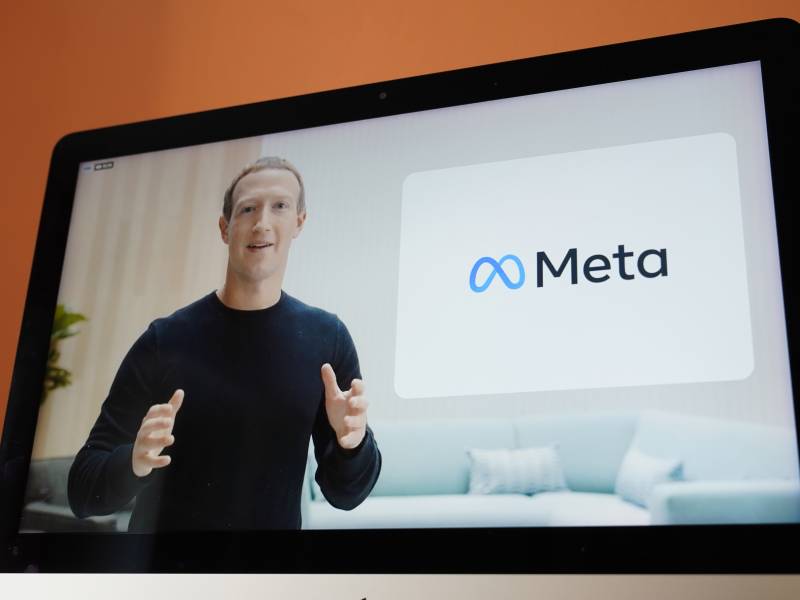Facebook demonstrated many of those experiences on Thursday: showing Zuckerberg riding a virtual reality electric hydrofoil (in a nod to his real-life hobby), fencing with a hologram, and walking through a 3D rendering of his “home space.”
Earlier this week, Facebook told investors its spending on virtual reality and other next-generation products and services will take a $10 billion bite out of its overall operating profit this year. It also announced plans to hire 10,000 workers in Europe over the next five years to build the metaverse.
On Thursday, Zuckerberg said he expects to invest “many billions of dollars for years to come,” painting a vision of the future where a billion people will use the metaverse and it will generate hundreds of billions of dollars in digital commerce — while acknowledging that goal remains “a long way off.”
“We are fully committed to this,” Zuckerberg said. “It is the next chapter of our work and, we believe, for the internet overall.”
In a nod to Facebook’s long run of crises, Zuckerberg devoted part of the presentation to emphasizing that the company will prioritize privacy and safety as it builds its new virtual services and hardware.
“Privacy standards will be built into the metaverse from Day One,” he said. “One of the lessons I’ve internalized from the last five years is we need to emphasize these principles from the start.”
Potential key to the company’s existence
Staying on top of the next big thing in tech is about more than just Zuckerberg’s interest in Silicon Valley’s latest fad: It’s about his company’s continued existence, which depends on attracting younger users.
The leaked internal documents show Facebook is worried about losing relevance as its user base grows older. People under 30 are spending less time on the platform, posting less and sending fewer messages, according to an internal report prepared in March and reported on by Bloomberg.
Meanwhile, Instagram, which the company views as a pipeline for younger users who will eventually age into its other apps, is losing teenagers to other social media platforms — a phenomenon the company identified as an “existential threat,” The New York Times reported.
Zuckerberg told investors on Monday he’s reorienting the company around appealing to young adults age 18 to 29, rather than the older crowd that has become its core. He cited threats including short-video app TikTok, which he said is “one of the most effective competitors that we have ever faced.”
The company’s big corporate overhaul comes as Congress threatens to pass tougher regulations on the tech industry, with some lawmakers saying it has grown so big and powerful that it’s like Big Tobacco was in its heyday.
“Facebook is going through so much turmoil, so much negativity” that the name change risks looking like “you are trying to hide something,” said Prashant Malaviya, a marketing professor at Georgetown University’s McDonough School of Business.
Changing names often yields mixed results
Other companies have changed their names in times of crisis with mixed results. In 2001, when Marlboro cigarette maker Philip Morris announced plans to rename itself Altria, a former Food and Drug Administration commissioner accused the company of “running away from tobacco.”
Malaviya says the Altria rebranding worked at the corporate level — but he points out the company never attempted to change the name of the product itself.
Similarly, the Facebook social network, known internally as the “big blue app,” isn’t going anywhere.
“The Facebook brand is going to continue to exist. The app will be there. Instagram is still going to be there,” Malaviya said. “And that’s where we have the problems with what the company is doing.”
In 2015, Google reorganized under a new parent company called Alphabet, and its founders handed over the day-to-day running of its lucrative search engine — although the company is still widely referred to as “Google.”
If that history is any guide, Malaviya says, don’t expect the name “Facebook” to disappear from conversation or headlines.
“Even if they’re talking about this new company, the people on Wall Street and Main Street might still continue to say, ‘Well, yeah, that’s still just Facebook,” he said.

9(MDAxOTAwOTE4MDEyMTkxMDAzNjczZDljZA004))
